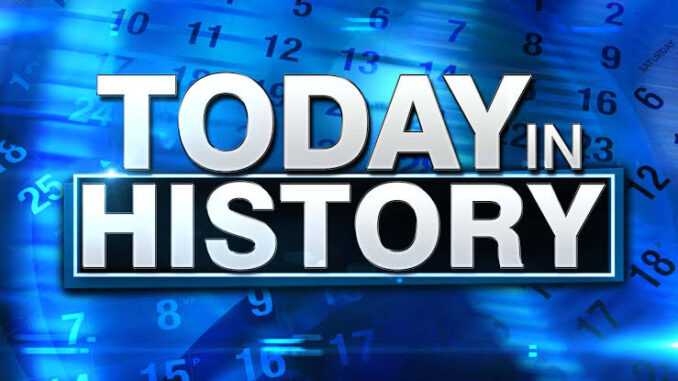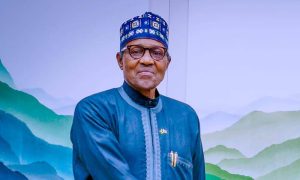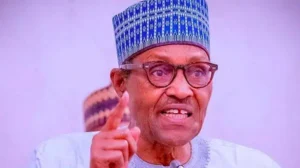

It was the election that saw a candidate from an opposition party, the All Progressives Congress (APC), defeating a sitting president from a powerful political party, the Peoples Democratic Party (PDP), which prided itself as being the largest political association on the African continent.

Similarly, the election saw a different political party getting the majority seats in the National Assembly, an accomplishment that was not recorded since the return of democracy in 1999 in the country. The same feat was recorded in gubernatorial and house of assembly elections in many PDP states in the South-west and North-central zones.
Buhari’s election was therefore seen as momentous; a new order and a new dawn in Nigeria. He got a large chunk of his votes from the Nigerian masses, who strongly felt detached and abandoned by the previous government of the PDP.
A section of the elite, who equally saw the writing on the wall – that the ‘Buhari Tsunami’ would surely not spare them if they showed any resistance – had no option but to also jump ship.
Similarly, while there was strong belief that Buhari’s popularity, impeccable character, strong commitment to the Nigerian project and his personal integrity in the eyes of world leaders have played key role in clearing his way to the Aso Rock Villa, pundits believe that the role played by the Independent National Electoral Commission (INEC) was also unprecedented in the country’s electoral history.

The introduction of the card reader by the former INEC chairman, Prof. Attahiru Jega, drastically reduced countless irregularities that marred previous elections and gave unfettered access to politicians to manufacture results in their favour.
“Nigerians must give credit where it is due,” said Mohammed Jaura Abdu, who is the chairman of Yobe State Independent Electoral Commission (YOSIEC).
“Though Buhari had basic credentials of becoming president, he alone cannot be a candidate and a judge in the same election. We must salute Prof. Jega for resisting flagrant provocation from various quarters during the conduct of the election and while declaring the results.
Look at how Jega deployed the concept of ‘opportunity cost’ and accepted the over blown votes brought from Rivers State, all in an effort to jack up what former President Goodluck Jonathan had. Look at how he (Jega) responded to the diatribe from Orubebe, all in an effort to save the country. The way the 2015 election was conducted remains the single factor that brings us this far,” he said.
Undoubtedly, the election was a watershed in Nigeria’s history. It was probably the only election that showcased two major blocs hotly contesting for power – the hitherto ruling PDP and the opposition APC, which is a product of powerful political parties – the Action Congress of Nigeria (ACN), the All Nigeria Peoples Party (ANPP), the Congress for Progressives Change (CPC), the nPDP, a breakway from the ruling PDP and some elements of the All Progressives Grand Alliance (APGA).
Various elections, including the presidential, gubernatorial, national and state assemblies were earlier scheduled to be held from 14 February 2015. However, due to so many reasons, including alleged poor distribution of voters’ cards and the insecurity in the North-east, INEC postponed the election by six weeks to 28 March.
However, most Nigerians believed that the real reason for the postponement was to pave way for the PDP, which needed to put its house in order. The party, observers said, had sensed danger that there was widespread disaffection across the land over acts of impunity that pervaded its intra-party affairs.
After Nigerians cast their votes, Buhari, who nominated Prof. Yemi Osinbajo (SAN) as his running mate got 15,424,921 votes, representing 53.96 per cent of the total votes cast; while Jonathan, who was seeking a second term alongside Arc. Namadi Sambo as his deputy, scored 12,853,162 votes, representing 44.96 per cent.
Throughout the period of the election, Nigeria was at a standstill – no movement by road, air or sea; all the country’s borders were sealed.
The presidential election, which was extended to 29 March, due to some technical factors, finally came to an end when Jonathan conceded defeat on 31 March, a development that doused serious tension, especially in northern part of the country, where there was apprehension on the possible repeat of the 2011 election violence.
Again, the 2015 election, the fifth since 1999, adjudged the most credible, was said to be the most expensive so far to have been held in Nigeria.
The presidential election was also the only one that was never contested in court, either by a political party, a group or an individual.
But despite its ‘perfections’, the new INEC chairman, Prof. Mahmood Yakubu, said the electoral umpire was made party to 680 cases filed by the various political parties at the end of the 2015 elections.
Yakubu stated this at the national conference for justices of the Court of Appeal and election petition tribunal judges with the theme ‘2015 Election Petition Tribunals and Appeals’ which was held in Abuja.
Twelve months after, INEC is still battling to clear its name in various courts over alleged irregularities that trailed other elections. It also held various reruns in some states but earned bashings from the public for trying to “institutionalise’ the tradition of inconclusive elections.”
On the other hand, Buhari, who is now 73, has remained an enigma, not only to the elite and the politicians but to the masses, who are equally sharply divided as to what the president means to them, or whether he had met their expectations.
His actions, inactions, policies and declarations have gone a long way in eliciting a mixed grill of celebration and murmuring from various quarters.
Similarly, his style of leadership, philosophy, frank approach to issues have severally clashed with the boastful manifesto of the APC, and are also the direct opposite of the hustling and bustling that characterised the 16 years’ rule of the PDP.
Two things that are constantly resonating recently include the remark he made in his speech shortly after he was sworn-in as president on May 29, 2015, when he declared that “I belong to everybody and I belong to nobody”.
It was a remark that took over the cyber space and the conventional media, with various stakeholders, including politicians, diplomats, technocrats and the masses giving it various interpretations.
At the end, analysts believe that Buhari simply meant that he will be for the masses, not for any group, political party or godfather.
The second issue is that Buhari had noted that some few people were afraid and had privately voiced fears that on coming back, he would go after them. “These fears are groundless. There will be no paying of old scores. The past is prologue,” he said.
He, however, assured that he would give corruption a big fight, wipe out security threat occasioned by the Boko Haram and revitalise the economy. He also assured neighboring countries that Nigeria would be ready to play any leadership role in Africa.
Buhari’s admirers are of the opinion that he had almost delivered in the fight against the Boko Haram and has gone far in attacking corruption.
But there are those that fault his economic policies, which have so far failed to mitigate rising cost of almost everything, acute fuel shortages and job losses in the land.
As a result of some of these factors, the Governance Advancement Initiative for Nigeria (GAIN), recently carried out a poll which showed that President Muhammadu Buhari’s Popularity Rating had dropped from 63.4% in January to 32.8%.
However, in his Easter message, Buhari had assured Nigerians not to lose hope in his change mantra.

Leave a Reply